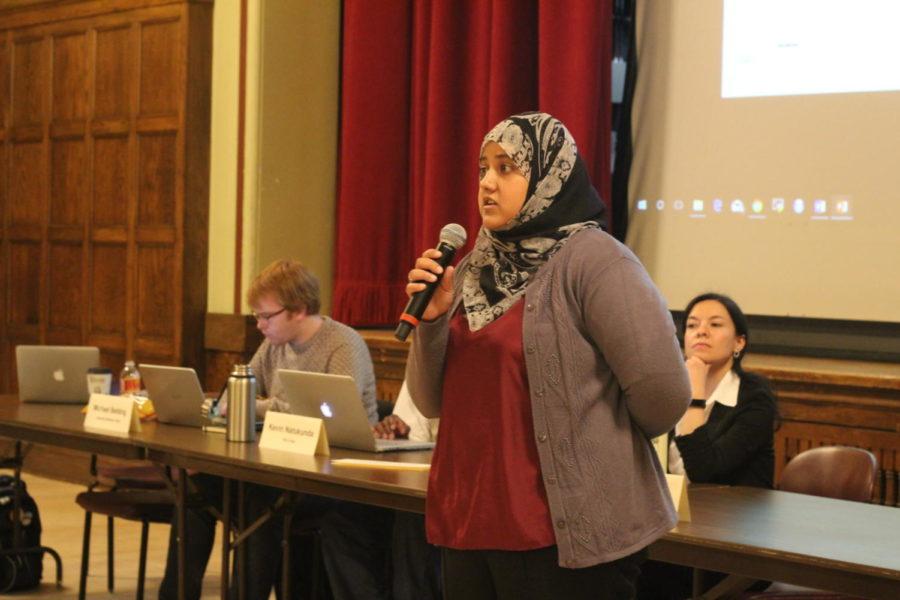GPSS discusses policy changes for clubs that violate funding guidelines
Norin Yasin Chaudhry is elected Graduate and Professional Student Senate President for the 2018-19 school year. Chaudhry is a graduate student in Biochemistry, Biophysics and Molecular Biology.
October 29, 2018
The Graduate and Professional Student Senate (GPSS) is looking into policy changes and initiatives that could change the way they impact clubs and organizations.
GPSS also discussed equal opportunity and the importance of voting in the upcoming midterm election. The meeting took place in the Sun Room of the Memorial Union Monday.
GPSS Treasurer Rui Ding talked about the funding of clubs and events. The senators discussed a policy about whether or not the GPSS should fund cultural groups which are not directly tied to a university department. Currently, the GPSS cannot fund such organizations.
Ding then raised a question about what to do with clubs who serially violate GPSS spending guidelines. The rules are that a club or student group cannot spend more than half of the money allocated to them for an event on food.
Senators looked into various ways to solve this problem, suggesting ideas such as a three strike policy, or reducing the amount of funds granted to clubs who violate the rules.
Eleanor Field, the Professional Advancement Grants (PAG) chair, said she is working on overhauling the PAG website so that it works better and more efficiently.
Field also discussed changing some of the terminology surrounding PAG so that it is less confusing.
One change made by Field was through changing the name for applicants who have never received a PAG grant from “priority one applicant” to “first time applicant.”
She also changed the name for applicants who are applying for their first grant in that year from “priority two applicant” to “returning applicant.”
Assistant Vice President of the Office of Equal Opportunity, Margo R. Foreman, spoke in front of GPSS to discuss the services her office provides. She discussed the Office of Equal Opportunity’s role in providing accommodations and access for students so they can succeed in both their graduate and undergraduate studies.
Foreman talked about how the Office of Equal Opportunity wants to help make sure relationships between graduate students and their professors are positive and beneficial for everyone involved.
“If you don’t have that collaborative relationship, if you don’t feel you have a voice to talk about how you’re impacted by the way exchanges happen, you almost become hostage to the relationship, just looking for the end of it, and that’s not what we want,” Foreman said.
















